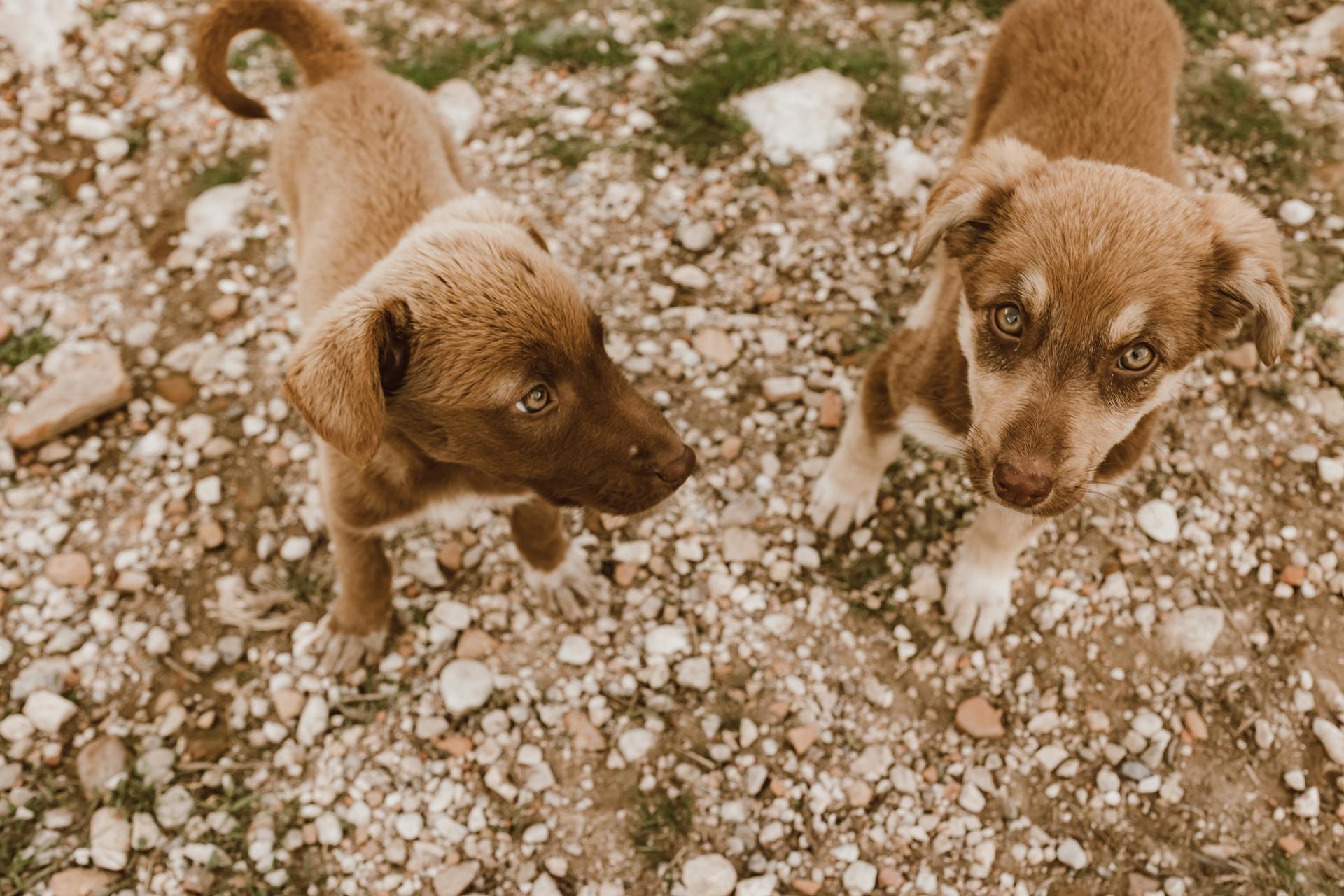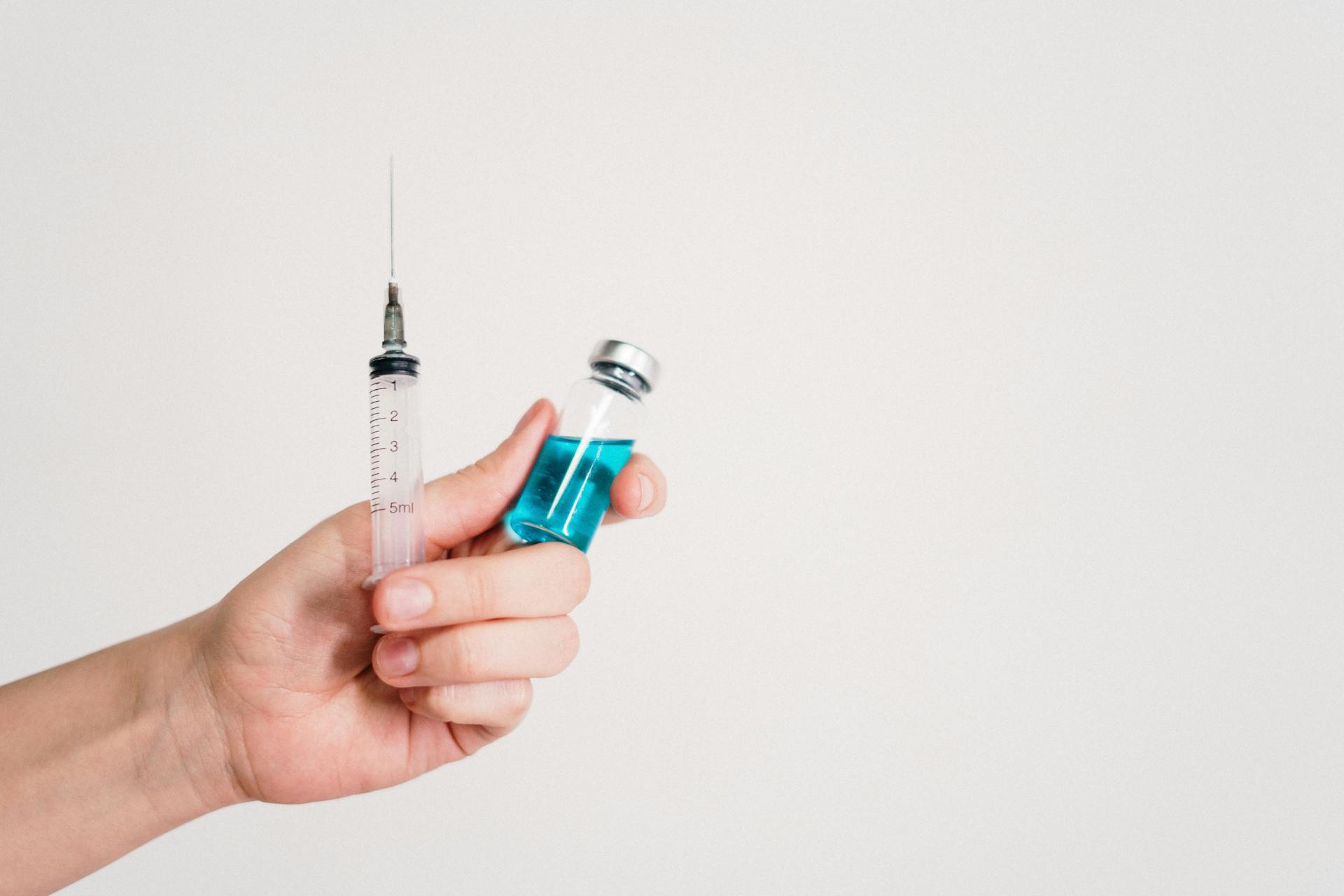
As a responsible Shih Tzu owner, you want to give your puppy the best possible start in life, and that includes protecting them from serious diseases through vaccination.
The first vaccinations for your Shih Tzu puppy typically take place around 6 to 8 weeks of age. This is when they are most vulnerable to diseases.
Your veterinarian will recommend a series of core vaccinations that include distemper, hepatitis, parvovirus, and rabies. These are essential to prevent life-threatening diseases.
It's essential to follow the vaccination schedule recommended by your veterinarian to ensure your puppy's health and safety.
Vaccination Basics
Dog vaccinations are crucial in protecting your Shih Tzu puppy from many serious and preventable diseases.
State law requires all dogs to be vaccinated for rabies, which is a fatal disease that can be easily prevented with a vaccine.
Dog vaccinations can protect your puppy from serious diseases that are easily preventable, and at your puppy's next veterinary appointment, you'll be able to understand the vaccination recommendations for your dog.
For more insights, see: Cachorro De Shih Tzu
Canine Parvovirus (P-Parvo)
Canine Parvovirus is a very serious, highly contagious condition that can quickly become fatal for many dogs, particularly puppies and unvaccinated adult dogs.
It attacks your dog's gastrointestinal tract, leading to vomiting, diarrhea, loss of appetite, and rapid loss of fluid and protein. This condition prevents your pup's GI tract from properly absorbing the nutrients your dog needs to stay healthy.
Parvovirus can live on surfaces, including soil, for up to a year and is resistant to many common disinfectants and cleaning solutions.
Even taking your unvaccinated puppy for a walk around the block could develop into a very serious veterinary emergency.
The DHPP 5-in-1 vaccine provides protection against Parvovirus, among other serious conditions, and is a crucial part of keeping your furry friend safe.
Deworming
Deworming is a crucial step before vaccinations, as parasites can alter your Shih Tzu's health and reduce the effectiveness of vaccines.
It's essential to deworm your Shih Tzu internally and externally before their first vaccine, as different types of parasites can impact their health.
After completing the initial vaccinations, your Shih Tzu should be dewormed every 3-4 months and before each revaccination to ensure the effectiveness of each vaccine.
This regular deworming schedule will help maintain your Shih Tzu's overall health and ensure their vaccinations remain effective.
Puppy Vaccination Schedule
A Shih Tzu puppy vaccination schedule is crucial for protecting your puppy from preventable diseases.
The typical vaccination schedule for a Shih Tzu puppy includes a series of vaccines that are administered at specific ages.
At 45 days, the first dose of the Parvovirus vaccine is given.
The second vaccine is administered at 9 weeks of age, which protects against distemper, Adenovirus type 2, Infectious hepatitis C, and Leptospirosis.
The third dose of the Parvovirus vaccine is given at 12 weeks of age.
Rabies vaccine is administered from 4 months of age.
Here's a summary of the typical vaccination schedule for a Shih Tzu puppy:
Your veterinarian may recommend additional vaccines, such as Bordetella, Lyme disease, and Coronavirus, depending on your puppy's lifestyle and risk factors.
It's essential to stay up-to-date with your puppy's vaccination schedule to ensure their health and well-being.
Vaccination Importance
Vaccination is crucial for Shih Tzu puppies to protect them from serious diseases that can be life-threatening. Vaccines help prepare a dog's immune system to defend itself from disease-causing organisms.
Your veterinarian will recommend vaccinating your Shih Tzu to reduce infection risks and prevent epidemics that could harm immunosuppressed or allergic dogs. They will inform you about the necessary vaccinations and their schedules.
Shih Tzu puppies are vulnerable to Parvovirus, so it's essential to give them the first dose of their vaccine before 45 days. Rabies vaccinations are also required by law in most states, including NY, and should be addressed at the time of the first visit for new patients.
Core puppy vaccinations and dog vaccinations are considered vital to all canines based on a universal risk of exposure, the severity of disease, and the risk of transmission to other dogs, as well as other animal species. These include Canine Parvovirus, Canine Distemper, Hepatitis, and Rabies.
Here are the core dog vaccinations recommended by the American Animal Hospital Association's Canine Task Force:
Getting your Shih Tzu vaccinated may seem like an unnecessary expense, but it will probably cost far less than treatment for the illnesses that could impact your pet if they aren’t protected.
Vaccination Types
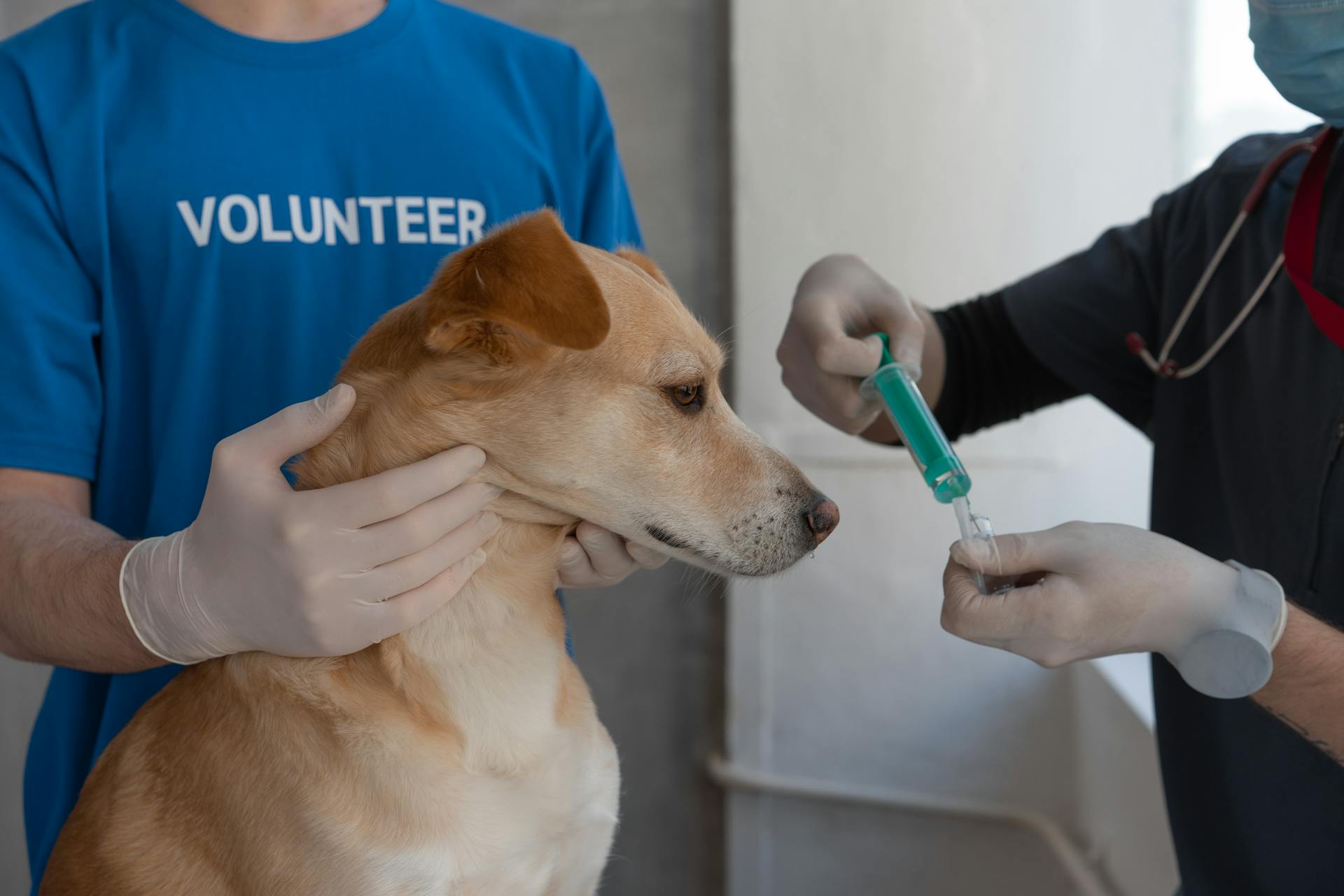
There are several types of vaccinations that your Shih Tzu puppy will need to stay healthy. Core vaccinations are essential for all puppies and include the Distemper, Hepatitis, and Parvovirus (DHPP) vaccine.
Core vaccinations are usually administered in a series of 3-4 doses, with the first dose given at 6-8 weeks old. The final dose is given at 16-17 weeks old, with a booster shot given 1 year later.
Non-core vaccinations are optional and include the Bordetella and Leptospirosis vaccines. These vaccines are recommended for puppies that are exposed to other dogs, such as in dog parks or daycare.
Core Vaccinations Explained
Core vaccinations are a crucial part of keeping your Shih Tzu healthy and protected from serious diseases. These vaccinations are considered vital to all canines and are recommended by the American Animal Hospital Association.
The core dog vaccinations include Canine Parvovirus, Canine Distemper, Hepatitis, and Rabies. These diseases can be severe and even life-threatening, making vaccination a must.
Rabies vaccinations are required by law in most states, including New York. The specific time frames for puppy vaccinations and dog vaccinations vary by state, but in New York, the puppy rabies vaccine is generally given at 14-16 weeks.
Here are the core dog vaccinations, grouped into two lists:
- Canine Parvovirus
- Canine Distemper
- Hepatitis
- Rabies
- Bordetella
- Canine Influenza (dog flu)
- Lyme vaccine
- Leptospirosis
Keep in mind that while these vaccinations are not considered core, they are still important for most dogs who may be exposed to these infectious diseases.
Core vs. Lifestyle Vaccines
Core vaccines are recommended for all pets and protect against diseases that are highly contagious, cause severe illness, and pose a serious risk to your pet's longevity, such as DHPP for dogs in North America.
There are two main types of core vaccines, but unfortunately, I don't have more information on that.
Core vaccines are essential for your pet's health and well-being, and it's crucial to discuss the vaccination protocol with your veterinarian to determine what's best for your furry friend.
Some core vaccines include DHPP, which is highly recommended for dogs in North America.
It's worth noting that core vaccines are not the same as lifestyle vaccines, which are recommended based on a pet's lifestyle and environment.
Here's a quick summary of the two types of vaccines:
Lifestyle vaccines, on the other hand, are recommended for pets that spend time outdoors around other animals, or in kennels, doggie daycare, or off-leash parks, and include vaccines for diseases like Lyme, leptospira, and bordetella.
Canine Adenovirus CAV-1/2
Canine Adenovirus CAV-1/2 is a viral disease that can affect your dog's liver, kidneys, spleen, lungs, and eyes. Early symptoms include a low-grade fever and congestion.
CAV-1 is a highly contagious virus that can be fatal if left untreated. Severe symptoms like jaundice, abdominal pain, eye inflammation, and bruising can appear as the disease progresses.
CAV-2 is a milder virus that the DHPP vaccination can protect your dog against. It typically doesn't cause serious symptoms but can lead to kennel cough, which can weaken your dog's immune system.
Kennel cough symptoms are similar to a human cold, including a hacking cough and congestion.
Vaccination Costs and Essentials
Vaccination costs can vary significantly based on location and the specific vaccinations being administered. Core vaccinations are a must for all puppies, and their costs range from $20 to $50 per shot.
Non-core vaccinations are not necessary for every dog, but may be recommended based on lifestyle and risk factors. These can add to the overall vaccination cost.
Some clinics offer combination vaccines that cover several diseases in one shot, which can save money. These combination vaccines can range from $50 to $100. Wellness packages that include vaccinations along with a check-up can be more cost-effective, usually ranging from $100 to $200.
Here's a breakdown of typical vaccination costs:
Vaccination Costs
Vaccination costs can vary significantly depending on several factors. The cost of dog vaccinations can range from $10 to $100 or more, depending on the specific vaccinations being administered and the location.
Core vaccinations are typically the most affordable, with prices ranging from $10 to $20 for core vaccines at discounted clinics. Annual Vaccination Fees can range from $40 to $70.
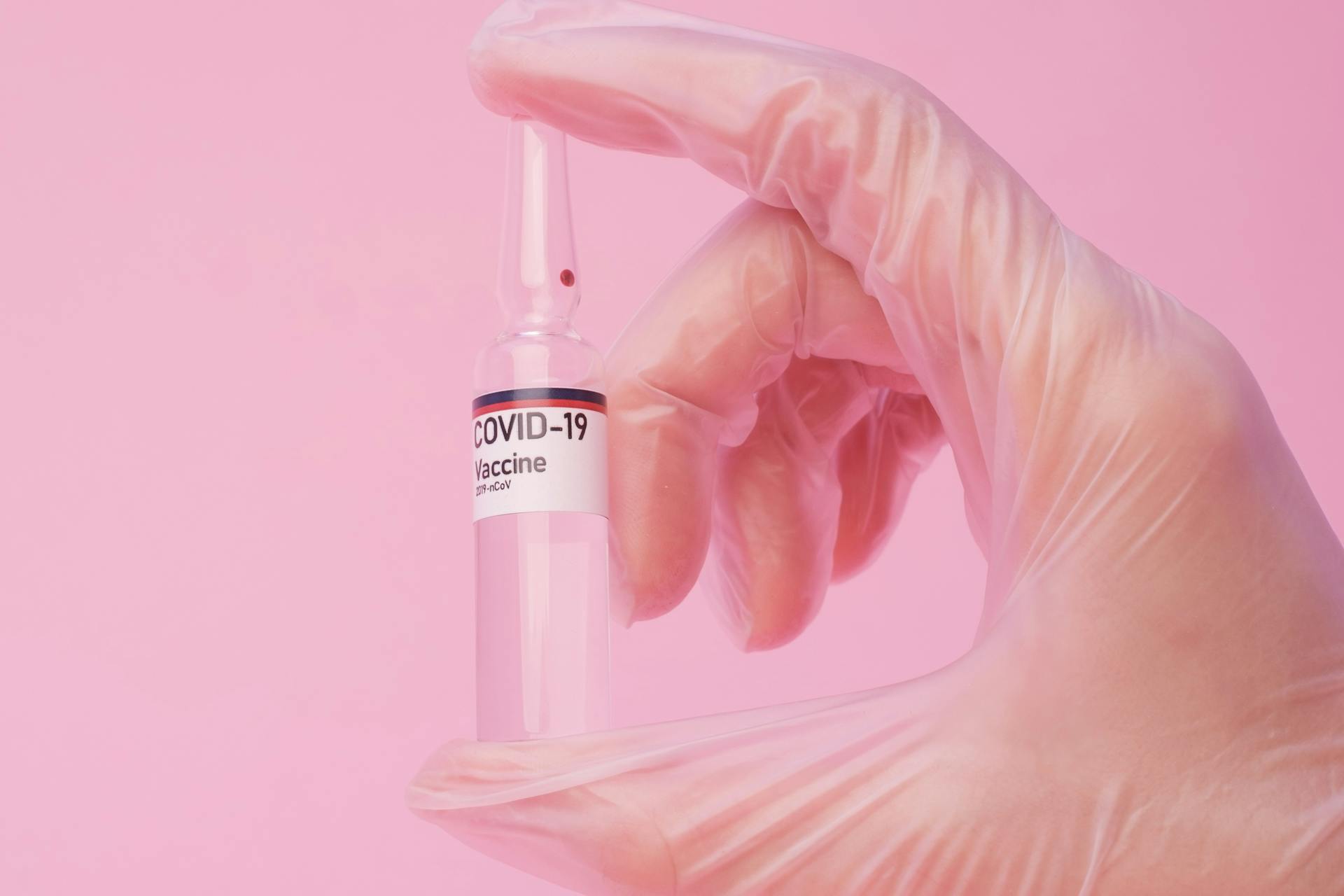
Combination vaccines, which cover several diseases in one shot, can range from $50 to $100 and may be a cost-effective option. Wellness packages, which include vaccinations along with a check-up, can usually range from $100 to $200.
It's essential to consult your veterinarian to determine the necessary vaccinations for your dog based on their health, age, and lifestyle.
Pet Vaccination Essentials
Canine Distemper is a multisystemic disease that mainly affects the lungs, intestine, and brain, causing symptoms like fever, nasal secretion, and neurological signs such as tremors or convulsions.
A Shih Tzu typically receives the first Canine Distemper vaccine at 6 weeks of age, followed by booster shots at two, three, and four months, and then every year to continue protection.
Parvovirus is a highly contagious viral disease that affects the intestine and white blood cells, causing vomiting and diarrhea that can be fatal if not treated promptly.
The first Parvovirus vaccine is given at 6 weeks of age, with booster shots at two, three, and four months, and then every year to maintain protection.
See what others are reading: Shih Tzu 4 Months
Rabies is a viral disease that affects the central nervous system and is almost always fatal if left untreated, making it a serious concern for dog owners.
The first Rabies vaccine is administered at 4 months of age, with annual booster shots required to maintain protection.
Here are the essential vaccines for Shih Tzus:
- Canine Distemper
- Parvovirus
- Rabies
Vaccination Risks and Side Effects
Vaccines are a crucial part of keeping your Shih Tzu puppy healthy, but like any medical treatment, they can have some side effects. These usually occur within three days of the injection and are more common in young puppies.
Some common side effects of vaccinations in Shih Tzus include benign diseases like kennel cough, which causes inflammation of the trachea and symptoms like dry cough and whitish phlegm. Fecal, an infectious intestinal viral disease, can also occur, mainly affecting puppies.
If your Shih Tzu does experience any reaction to vaccinations, symptoms may include fever, sluggishness, loss of appetite, facial or paw swelling and/or hives, vomiting, diarrhea, pain or swelling around the injection site, collapse, difficulty breathing, and seizures.
Here are some common side effects of vaccinations in Shih Tzus:
- Fever
- Sluggishness
- Loss of appetite
- Facial or paw swelling and/or hives
- Vomiting
- Diarrhea
- Pain or swelling around the injection site
- Collapse, difficulty breathing, and seizures
Side Effects
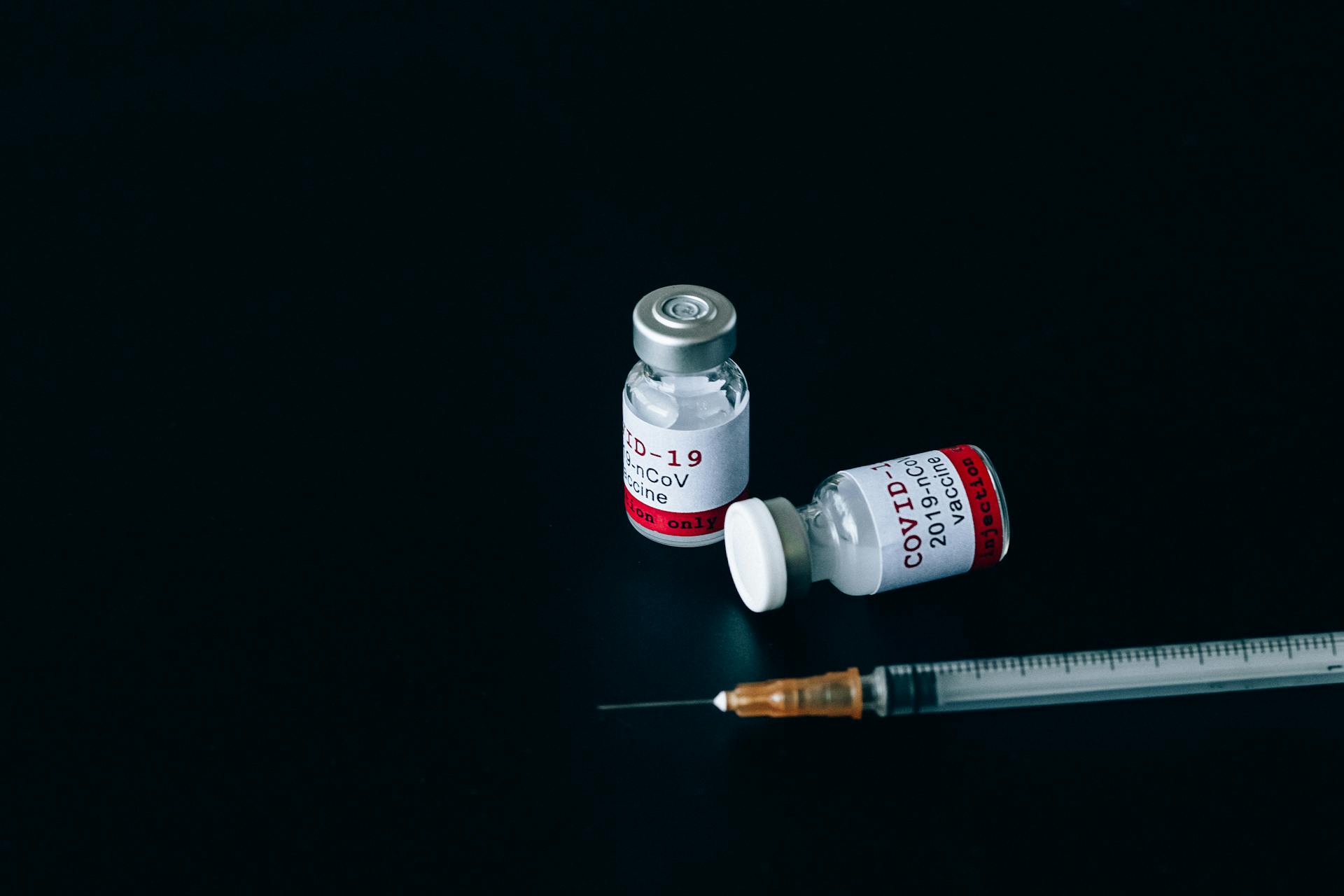
Side effects from vaccinations can occur, but it's essential to know that they're rare. Most reactions are mild and short-lived.
If your dog does experience any reaction to vaccinations, symptoms may include fever, sluggishness, loss of appetite, facial or paw swelling, hives, vomiting, diarrhea, pain or swelling around the injection site, and in severe cases, anaphylactic shock.
Mild symptoms can often be ignored, as they're a sign of the immune system responding to the vaccine. However, if you suspect a more severe reaction, such as facial swelling, vomiting, or lethargy, you should contact your veterinarian immediately.
The Shih Tzu breed, in particular, may experience certain side effects, such as benign disease (kennel cough), fecal disease, and heartworms, which can be prevented with optional vaccines.
Here are some possible side effects to look out for:
- Fever
- Sluggishness
- Loss of appetite
- Facial or paw swelling and/or hives
- Vomiting
- Diarrhea
- Pain or swelling around the injection site
- Collapse, difficulty breathing, and seizures (anaphylactic shock)
- Benign disease (kennel cough)
- Fecal disease
- Heartworms
Remember to Ask Vet About Vaccine
Welcoming a new furry friend into your home is a big responsibility, and it's essential to be aware of the commitment that comes with it. Having a Shih Tzu does not only include the positive aspects such as company, having a trusted pal, the affection, and the contagious joy that it can give you.
To truly understand the demands of caring for a Shih Tzu, it's crucial to ask your veterinarian about the necessary vaccines. This will help you prepare for the veterinary assistance your dog will require.
State law requires all dogs to be vaccinated for rabies, but there are other vaccinations that can protect your dog from serious diseases. At your dog's next veterinary appointment, you can discuss the vaccination recommendations with your veterinarian.
Adverse reactions to dog vaccines are rare, but they can still occur. If your dog does experience a reaction, symptoms may include fever, sluggishness, loss of appetite, facial or paw swelling and/or hives, vomiting, diarrhea, pain or swelling around the injection site, collapse, difficulty breathing, and seizures.
Here are some common side effects to look out for after vaccination:
- Fever
- Sluggishness
- Loss of appetite
- Facial or paw swelling and/or hives
- Vomiting
- Diarrhea
- Pain or swelling around the injection site
- Collapse, difficulty breathing, and seizures
If you suspect a more severe reaction to puppy vaccines or dog vaccines, such as facial swelling, vomiting, or lethargy, you should contact your veterinarian immediately.
Vaccination Process and Planning
The vaccination process for your Shih Tzu puppy is a critical step in protecting them from serious diseases.
State law requires all dogs, including Shih Tzus, to be vaccinated for rabies.
At 4 Paws Veterinary Care, they recommend scheduling vaccinations for your puppy to protect them from many dangerous and even fatal diseases.
While state law only requires rabies vaccination, other vaccinations can also be scheduled to protect your puppy.
You should consult with your veterinarian to understand the vaccination recommendations for your Shih Tzu puppy.
The vaccination process typically begins at 4 to 6 weeks of age, and subsequent vaccinations are given at 10 to 12 weeks of age.
Your veterinarian will help you understand the schedule and ensure your puppy receives the necessary vaccinations.
On a similar theme: Shih Tzu Age
Frequently Asked Questions
How many shots do Shih Tzu puppies need?
Shih Tzu puppies require a series of three core vaccinations, typically administered at 6-, 12-, and 16 weeks old. This series includes the DHLPP vaccine and a rabies vaccination.
What is the 7 in 1 vaccine for Shih Tzu?
The 7 in 1 vaccine protects Shih Tzus against seven serious diseases, including distemper, parvovirus, and leptospirosis. This vaccine is essential for maintaining your Shih Tzu's health and preventing potentially life-threatening illnesses.
How much 5-in-1 vaccine for Shih Tzu?
The 5-in-1 vaccine for Shih Tzu costs around Php 400 or more. It's recommended to administer this vaccine between 10-12 weeks of age to protect against distemper, adenovirus, parainfluenza, and parvovirus.
What are the side effects of the 5-in-1 vaccine for Shih Tzu?
Mild side effects of the 5-in-1 vaccine for Shih Tzus may include soreness, fever, or lethargy. Serious reactions are rare but can occur
When should Shih Tzu puppies get their first shots?
Shih Tzu puppies typically receive their first shots between 6-8 weeks old, including the DHPP vaccine and initial rounds of Bordetella and Lyme disease vaccinations. This is a critical milestone in their health and well-being, and it's essential to follow a veterinarian's recommended vaccination schedule.
Sources
- https://www.shurbeezshihtzu.com/vaccines.html
- https://shihtzutime.com/shih-tzu-vaccination-all-you-need-to-know/
- https://www.4pawsanimal.com/services/dogs/dog-vaccinations
- https://www.michiganhumane.org/pet-vaccination-guide/
- https://www.whitesburganimalhospital.com/site/blog/2022/07/15/dhpp-5-in-1-vaccine-for-dogs
Featured Images: pexels.com


